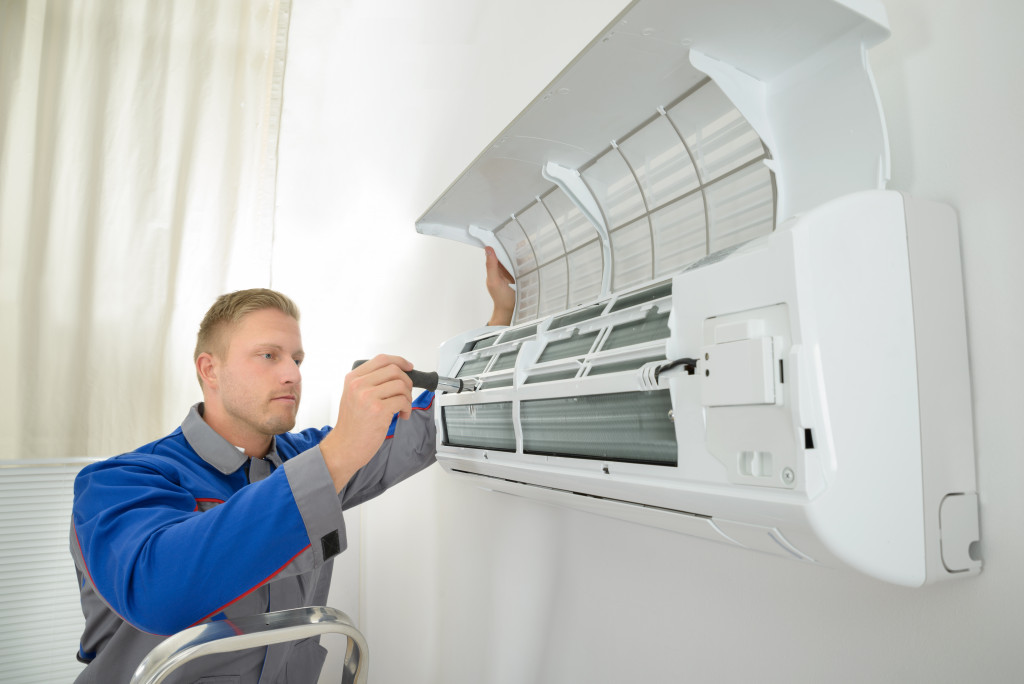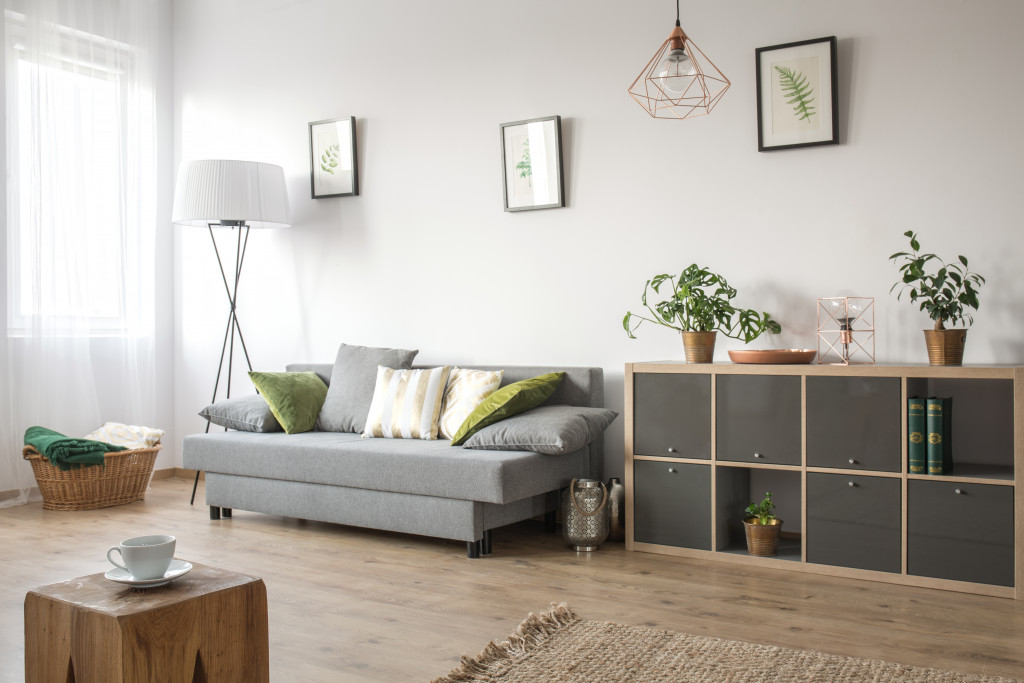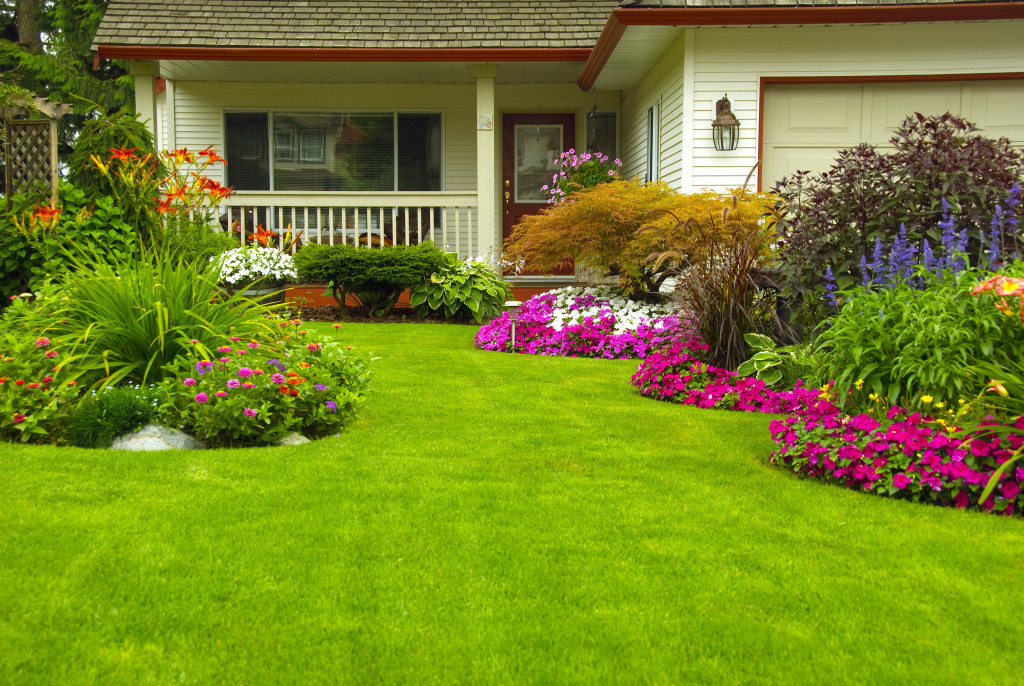- Improving air quality by increasing ventilation, using air filters, and including houseplants in the home.
- Maintaining HVAC systems to reduce pollutants and increase efficiency.
- Creating space for exercise and sports to encourage physical activity.
- Letting natural sunlight in to improve air quality, eliminate odors, maintain energy efficiency, and provide mood and stress relief.
A healthy lifestyle is essential for people to live a long, happy, and successful life. Research shows that healthy lifestyles have numerous benefits, including reducing the risk of chronic illnesses like heart disease, stroke, diabetes, and cancer. It can also improve mental health and reduce stress levels. Additionally, having an active lifestyle can help maintain a healthy weight and keep blood pressure in check.
Statistics show that nearly 40% of deaths in the United States are linked to unhealthy lifestyles. This includes not eating enough fruits and vegetables, smoking tobacco products, overconsumption alcohol, physical inactivity, and being overweight or obese. These results indicate that improving lifestyle habits could reduce the number of deaths attributed to unhealthy behaviors by around one-third.
Creating an environment conducive to a healthy lifestyle starts with creating a healthy home. However, you might need help to convert your home into a more beneficial space. Here are some steps to take to complete a healthy home:
Improving Air Quality

Air quality is an essential factor in maintaining a healthy home. Poor air quality can cause respiratory and heart diseases and aggravate asthma and allergies. It can also lead to headaches, nausea, eye irritation, and fatigue. Therefore, it’s essential to improve the air quality of your home. Here are a few ways to accomplish this:
Increase Ventilation
Increasing ventilation is essential in improving air quality at home. Opening windows and using exhaust fans will allow fresh outdoor air to enter the house and circulate through it. This helps remove pollutants such as carbon monoxide, dust, pollen, pet dander, mold spores, and other airborne contaminants from the indoor environment. Additionally, regularly changing HVAC system filters help reduce airborne particles circulating throughout the home.
Use Air Filters
Air filters help reduce pollutant levels indoors by trapping dust particles before entering your lungs. Using high-efficiency particulate air (HEPA) filters can be especially beneficial since these are designed to capture 99% of particles larger than 0.3 microns. Furthermore, using air filtration systems with ultraviolet germicidal irradiation may also help reduce bacteria and viruses circulating in the indoor environment.
Houseplants
Incorporating houseplants into your home is another excellent way to improve its air quality without too much effort! Plants act as natural purifiers by converting carbon dioxide into oxygen while removing toxins like formaldehyde from the surrounding atmosphere through photosynthesis. Additionally, some plants are known for releasing moisture which acts as a natural humidifier that increases humidity levels indoors—aiding sinus congestion relief!
Maintain HVAC Systems
It’s essential to keep your HVAC system running smoothly by performing regular maintenance checks and changing filters. Doing so will help reduce the amount of pollutants circulating indoors while improving the efficiency of your HVAC cooling system. Additionally, it’s best to contact a cooling system emergency repair professional immediately instead of trying to fix it yourself. Pros can ensure the problem is resolved quickly and correctly, preventing further complications.
Creating Space for Exercise and Sports
Physical activity is essential for a healthy lifestyle. Therefore, creating a space in the home specifically for exercise and sports can help encourage children and adults alike to stay active. Designating a room as an exercise room or turning the basement into an indoor basketball court can motivate people to be physically active. Additionally, investing in outdoor sports equipment such as badminton sets, soccer nets, and tennis balls will allow family members to have fun while getting their daily dose of physical activity outdoors!
Of course, constant use of those spaces will be essential, making it necessary to keep them clean and free of dust. Vacuuming, mopping, and wiping down surfaces regularly will help reduce bacteria accumulation and the risk of illnesses caused by poor hygiene practices.
Letting Natural Sunlight In

Sunlight is essential for good health and can help boost mood, reduce stress, and regulate sleep cycles. To take advantage of sunlight’s benefits at home, open the curtains or blinds when the sun is out! Doing so will give your home a natural light source which can help improve air quality, eliminate odors, and promote better energy efficiency. Additionally, using sheer curtains in rooms with direct sunlight will provide light without too much heat entering your living space.
Of course, natural sunlight can make the home too warm and bright for your liking at certain times during the day. If you want to control the light entering your home, use blackout curtains for windows or invest in adjustable blinds.
Final Thoughts
Creating a healthy home starts with taking the necessary steps to ensure the environment is conducive to a healthier lifestyle. Following the tips mentioned in this article can help improve air quality, reduce dust accumulation, and take advantage of natural sunlight while maintaining privacy and comfort. These little steps will benefit your family’s health today and well into the future!

